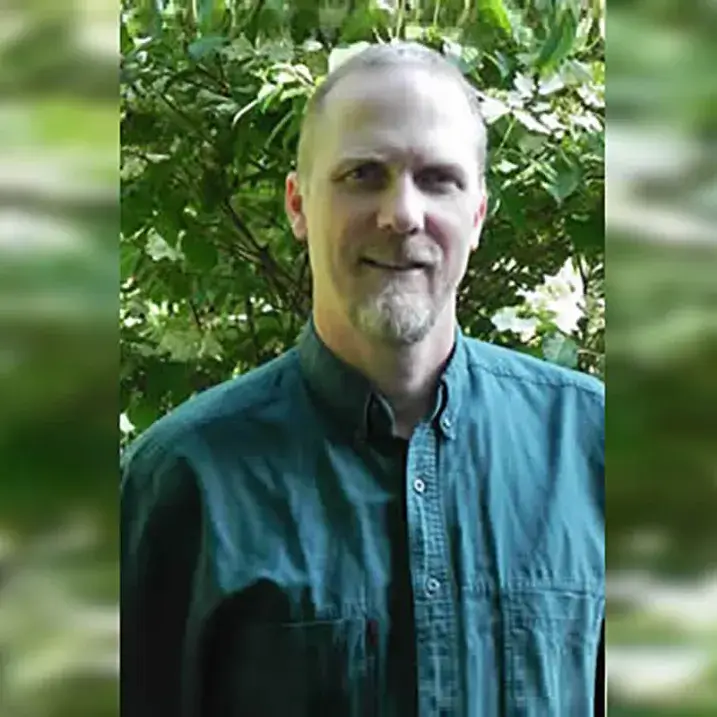Alma mater(s)
- Ph.D. Princeton, 1989
Document
Download CV (248.77 KB)
Areas of expertise
English renaissance literature and cultural history; European epic tradition, the Bible, the history of science, and literary theory
Courses
- The London Stage
- Shakespeare
- TAP: Reading the Gospels
- Shakespeare: Production Workshop
- The Bible as Literature
- Paradise Lost and Judeo-Christian Tradition
- HCOL: Modes of Inquiry
- Milton
- Shakespeare and Tragedy
- Literary London: Novels & Plays in London
- Reading the Bible: Literary and Historical Perspectives
- Crime/Story
- TAP: Crime/Story
- Survey of Literary Theory & Criticism
- Critical Approaches to Literature
- TAP: Imagining Shakespeare
- Genesis: The Novel
- Narrative
- The Age of Milton
- Texts and Contexts
- Critical Theories
- Shakespearean Comedies
Publications
Andrew Barnaby Publications (DOCX)
Awards and Achievements
- Interdisciplinary Experiential Engagement Grant (with Deb Ellis), College of Arts and Sciences,
2015-16 - Faculty Activity Network Grant, Office of the Vice President for Research, 2015
- Multidisciplinary Collegial Network Grant, UVM Humanities Center, 2014
- WID Institute, Faculty Fellow May 2014
- Lattie Coor Fund Research Assistantship Award (granted Fall 2010 for Spring 2011)
- Graduate Teacher of the Year, Department of English, UVM 1994, 1996, 2008
- UCRS Summer Grant, University of Vermont, 1997
- UCRS Summer Grant, University of Vermont, 1994
- Nominated for Kroepsch-Maurice Teaching Award, University of Vermont, 1994
- University of Vermont Instructional Incentive Grant, 1993
- COR Grant, Tulane University, 1990
- Mellon Fellowship in the Humanities, 1983-85, 1988
- Princeton University Fellowship, 1985-87
- Princeton University Summer-Seminar Fellowship, 1987
- National Merit Scholarship, 1979-83
- Catholic University Archdiocesan Scholarship, 1979-83
- H. Edward Cain Award in English (Catholic University), 1983
- James Marshall Campbell / Phi Beta Kappa Award, 1983
- Washington Reader’s Club Award, 1983
Courses
- The London Stage
- Shakespeare
- TAP: Reading the Gospels
- Shakespeare: Production Workshop
- The Bible as Literature
- Paradise Lost and Judeo-Christian Tradition
- HCOL: Modes of Inquiry
- Milton
- Shakespeare and Tragedy
- Literary London: Novels & Plays in London
- Reading the Bible: Literary and Historical Perspectives
- Crime/Story
- TAP: Crime/Story
- Survey of Literary Theory & Criticism
- Critical Approaches to Literature
- TAP: Imagining Shakespeare
- Genesis: The Novel
- Narrative
- The Age of Milton
- Texts and Contexts
- Critical Theories
- Shakespearean Comedies
Publications
Awards and Achievements
- Interdisciplinary Experiential Engagement Grant (with Deb Ellis), College of Arts and Sciences,
2015-16 - Faculty Activity Network Grant, Office of the Vice President for Research, 2015
- Multidisciplinary Collegial Network Grant, UVM Humanities Center, 2014
- WID Institute, Faculty Fellow May 2014
- Lattie Coor Fund Research Assistantship Award (granted Fall 2010 for Spring 2011)
- Graduate Teacher of the Year, Department of English, UVM 1994, 1996, 2008
- UCRS Summer Grant, University of Vermont, 1997
- UCRS Summer Grant, University of Vermont, 1994
- Nominated for Kroepsch-Maurice Teaching Award, University of Vermont, 1994
- University of Vermont Instructional Incentive Grant, 1993
- COR Grant, Tulane University, 1990
- Mellon Fellowship in the Humanities, 1983-85, 1988
- Princeton University Fellowship, 1985-87
- Princeton University Summer-Seminar Fellowship, 1987
- National Merit Scholarship, 1979-83
- Catholic University Archdiocesan Scholarship, 1979-83
- H. Edward Cain Award in English (Catholic University), 1983
- James Marshall Campbell / Phi Beta Kappa Award, 1983
- Washington Reader’s Club Award, 1983
